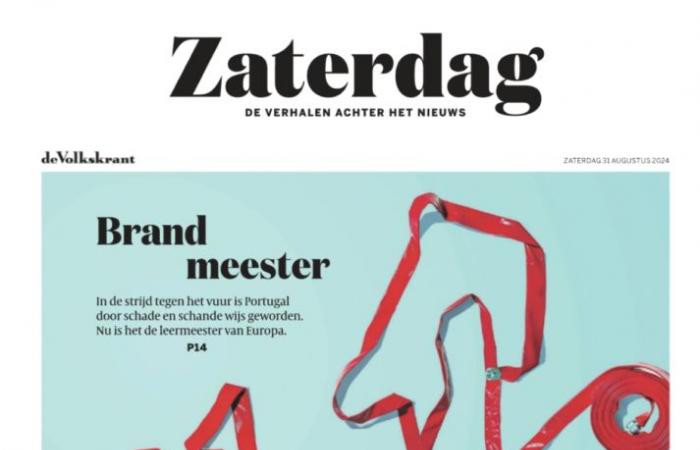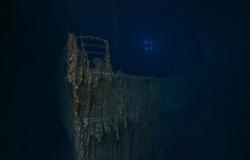For a long time, Portugal was “the worst student in the class when it comes to wildfires”, remember The Volkskrant. “The combination of drought and exposure to dry winds from the Atlantic made it the European country that experienced the most extreme fires this century.”
Ce “dangerous cocktail” culminated in 2017, a disastrous year for Portugal. Sixty-six people died and more than 200 were injured in what was “the deadliest wildfire in the country’s history.”
“This year marked a turning point,” confirms Andre Fernandes, the head of civil protection, to the Dutch newspaper.
Since then, Portugal has thoroughly revised its strategy, to the point of becoming an example for its European neighbours, notes The Volkskrant, who devotes the front page of his weekly supplement to him Saturday (“Saturday”), where a fire hose outlines the outline of Europe. In the title, it plays on the double meaning of the word fire chief – which, in common usage, designates the fire chief, but literally means “master of fires”.
Boreal zones
The new Portuguese strategy is based on several levers, explains the newspaper: substantial investments in equipment and the recruitment of firefighters, so that “Some 15,000 firefighters can now be deployed in the summer.” Prevention, which “in particular, it encourages farmers to plant more trees of endemic varieties, which are less flammable.” And finally, regulation and repression:
“Because while climate change creates favorable conditions, the majority of fires continue to be caused by human negligence.”
Furthermore, within the framework of the European rescEU programme, “556 firefighters from 12 countries went to help their colleagues in countries exposed to forest fires.”
Finally, “help” is not quite the right word, reacts a Portuguese firefighter, explaining that if Finnish colleagues did indeed come to lend them a hand, they gained experience in the process.
[…] - Courrier international






